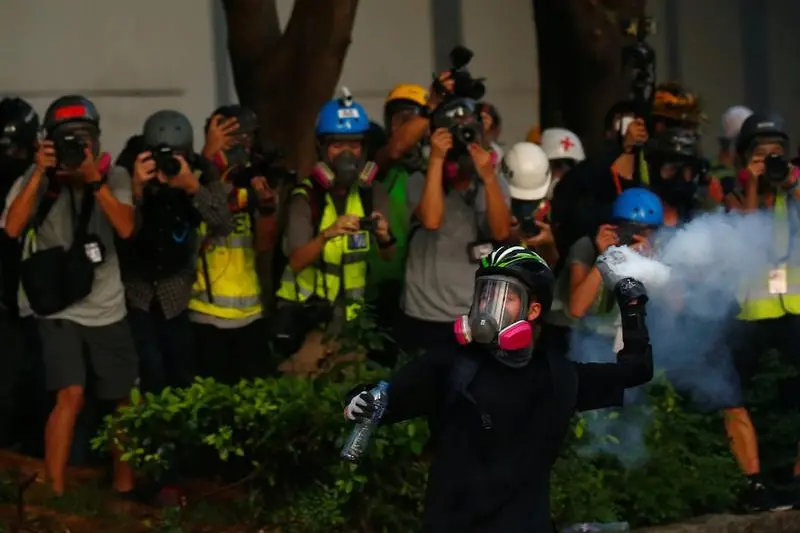PHOTO
HONG KONG, WASHINGTON - Washington is casting a longer shadow over Hong Kong. Protests in the Chinese territory have rallied momentum for a U.S. proposal that scrutinises its special trade status and threatens sanctions. It’ll be hard to make the bill a priority in Congress, but President Donald Trump could use it as leverage as he seeks a broader deal with Beijing.
The Hong Kong Human Rights and Democracy Act would assess the level of autonomy in the special administrative region annually and enable penalties on officials who undermine it. It also would prevent denying visas for Hongkongers who participate in non-violent protests and amend the U.S. legal framework that treats Hong Kong differently from the rest of China on investment, law enforcement and other issues.
More American lawmakers are becoming sympathetic. Democratic House Speaker Nancy Pelosi and Republican Senate Majority Leader Mitch McConnell have both strongly supported the protesters and condemned Beijing. Despite the bipartisan backing in an otherwise deeply divided Washington, however, the bill has not made it high on the congressional agenda. Time is short for this year’s legislative session and there are essential items to be tackled, including spending plans to avoid a government shutdown.
Trump doesn’t seem focused on it either. He has only vaguely called the protests a “very tough” situation. Trade is a bigger priority, especially with high-level meetings slated for next month. Trump has put a hawkish China speech by Vice President Mike Pence on hold, pending the trade discussions.
Even so, the bill could prove to be a potent weapon if Trump decides to link it to trade talks. He already has used U.S. sales restrictions to Chinese telecommunications firm Huawei as a bargaining chip. People on both sides of the fault lines in Hong Kong, including local tycoons, sense just how powerful the legislation could be.
Thousands of demonstrators recently descended on the city’s U.S. consulate, waving American flags and urging Congress to pass the bill. Chief Executive Carrie Lam later vowed not to let the U.S. legislature become a “stakeholder” in the protests, comments echoed by other officials in the territory and Beijing. They may be too late.
CONTEXT NEWS
- Hong Kong Chief Executive Carrie Lam warned on Sept. 10 against foreign interference in the Chinese-ruled city’s affairs, saying an escalation of violence could not solve social issues. A bipartisan group of U.S. senators wrote to the U.S. State and Commerce departments the same day, asking them to assess American export rules for Hong Kong.
(Editing by Jeffrey Goldfarb and Katrina Hamlin)
© Reuters News 2019





















